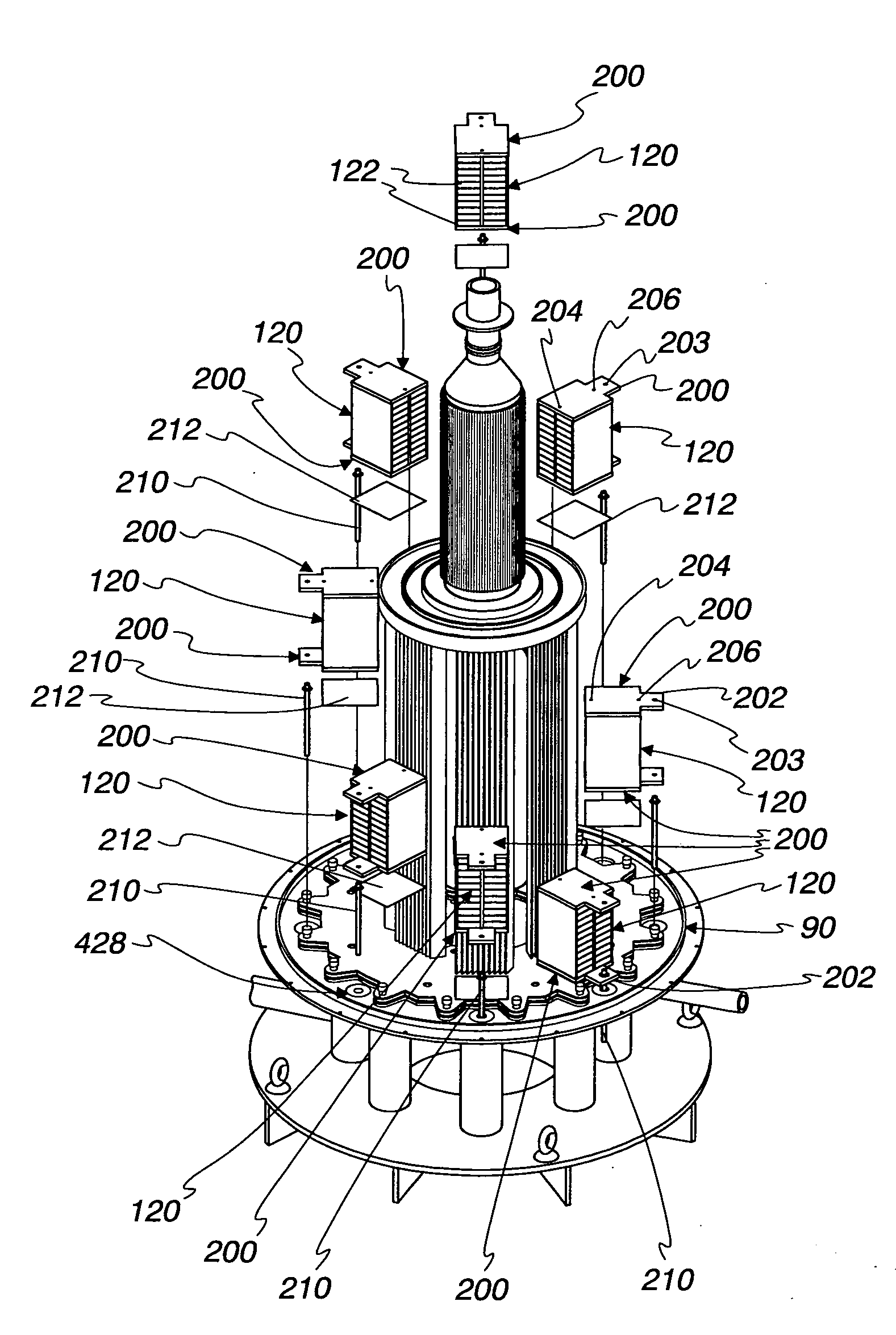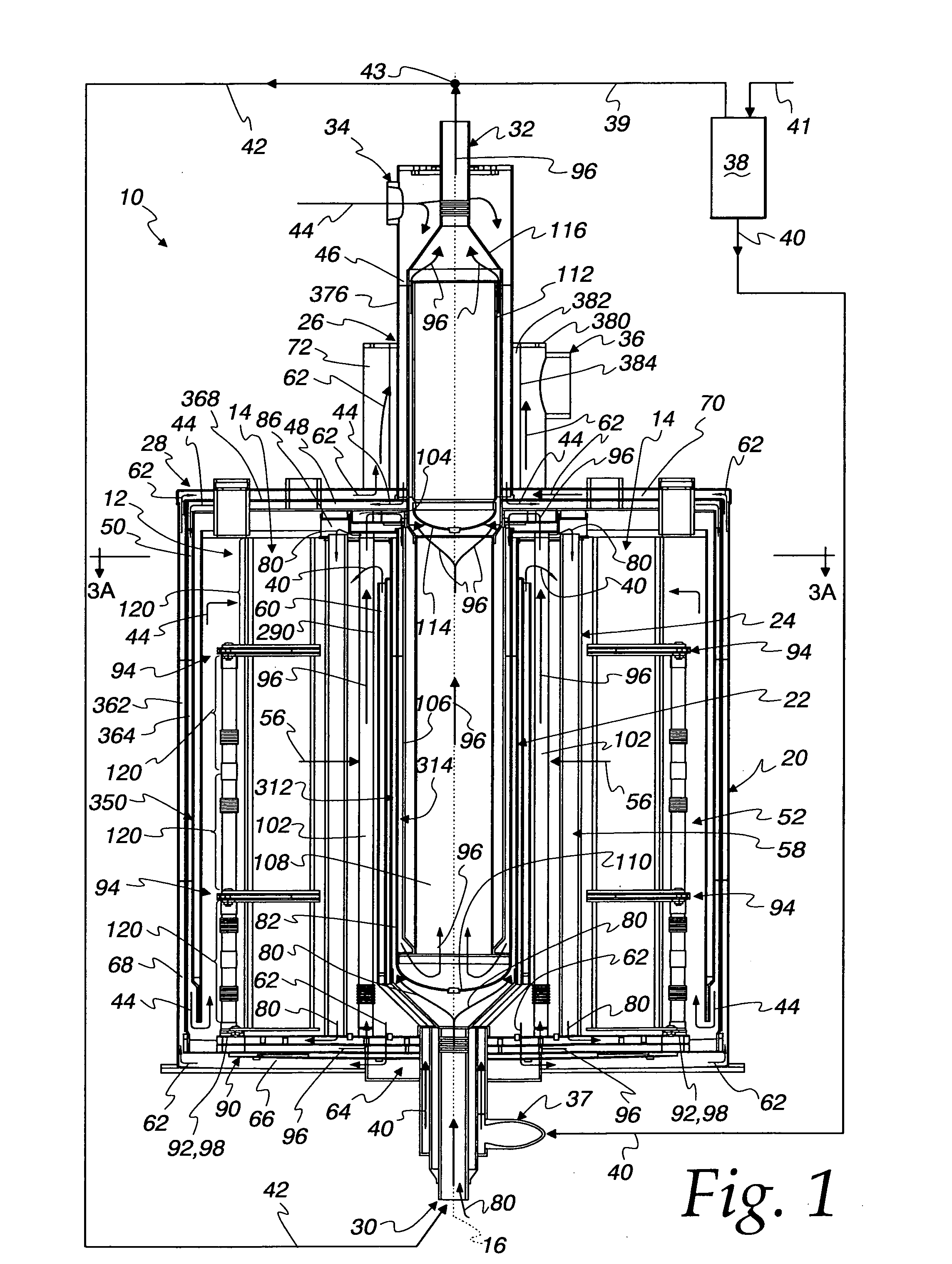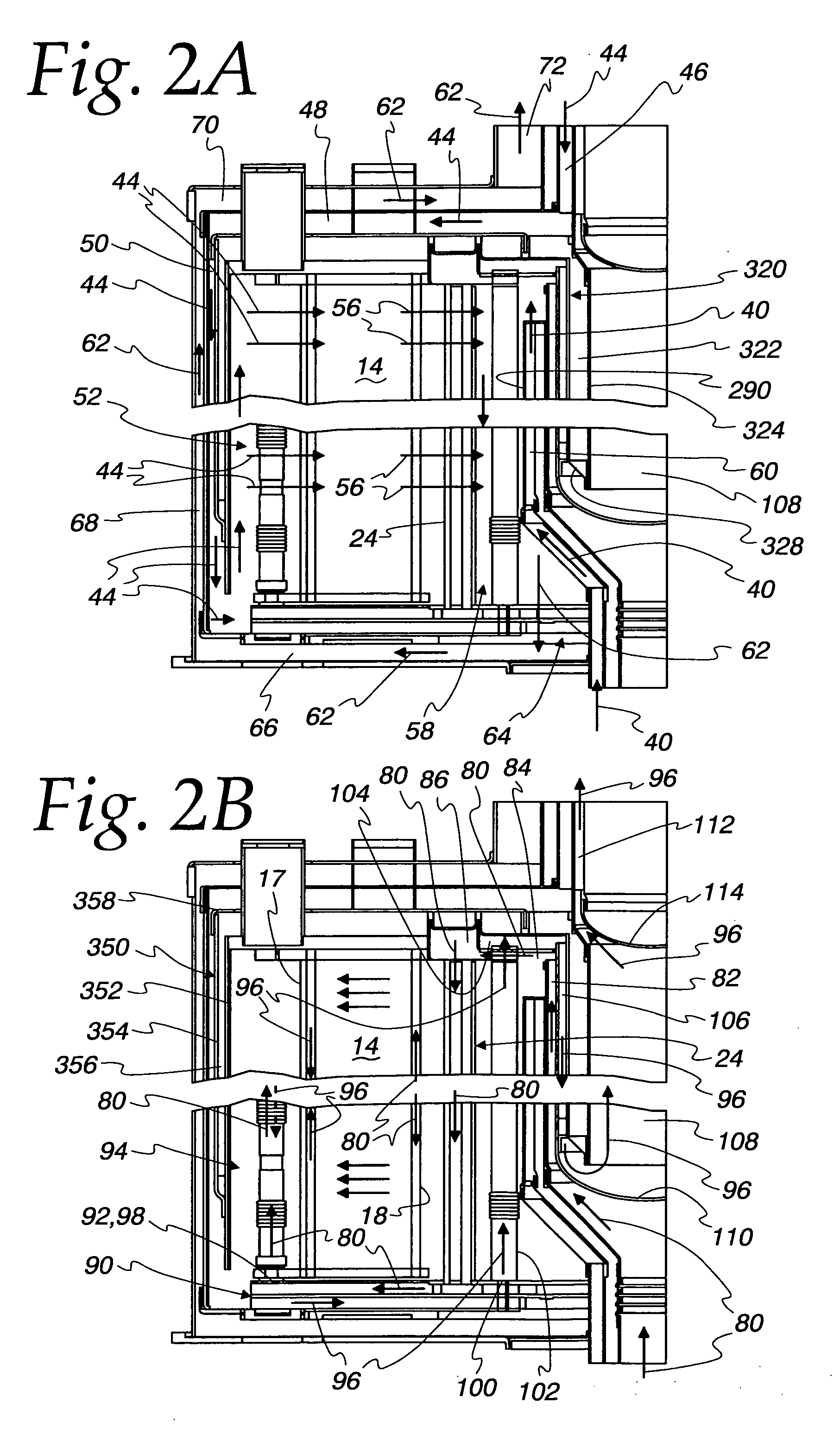Integrated solid oxide fuel cell and fuel processor
a solid oxide fuel cell and integrated technology, applied in the direction of fuel cells, fuel cell components, fuel cell grouping, etc., can solve the problems of limiting the practicality of its use, low activation voltage loss of sofc, and expensive fabrication methods
- Summary
- Abstract
- Description
- Claims
- Application Information
AI Technical Summary
Benefits of technology
Problems solved by technology
Method used
Image
Examples
Embodiment Construction
[0055]With reference to FIGS. 1, 2A, 2B and 3A, an integrated fuel cell unit 10 is shown in form of an integrated solid oxide fuel cell (“SOFC”) / fuel processor 10 having a generally cylindrical construction. The unit 10 includes an annular array 12 of eight (8) fuel cell stacks 14 surrounding a central axis 16, with each of the fuel cell stacks 14 having a stacking direction extended parallel to the central axis 16, with each of the stacks having a face 17 that faces radially outward and a face 18 that faces radially inward. As best seen in FIG. 3A the fuel cell stacks 14 are spaced angularly from each other and arranged to form a ring-shaped structure about the axis 16. Because there are eight of the fuel cell stacks 14, the annular array 12 could also be characterized as forming an octagon-shaped structure about the axis 16. While eight of the fuel cell stacks 14 have been shown, it should be understood that the invention contemplates an annular array 12 that may include more than...
PUM
 Login to View More
Login to View More Abstract
Description
Claims
Application Information
 Login to View More
Login to View More - R&D
- Intellectual Property
- Life Sciences
- Materials
- Tech Scout
- Unparalleled Data Quality
- Higher Quality Content
- 60% Fewer Hallucinations
Browse by: Latest US Patents, China's latest patents, Technical Efficacy Thesaurus, Application Domain, Technology Topic, Popular Technical Reports.
© 2025 PatSnap. All rights reserved.Legal|Privacy policy|Modern Slavery Act Transparency Statement|Sitemap|About US| Contact US: help@patsnap.com



